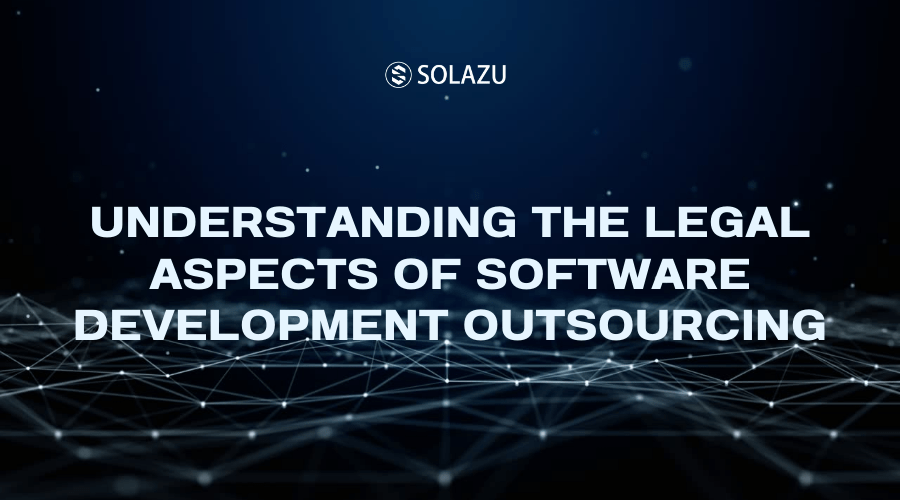As more and more businesses turn to outsourcing for their software development needs, it’s important to understand the legal aspects that come with it. While outsourcing can bring many benefits such as cost savings, increased efficiency, and access to specialized expertise, it also introduces certain legal risks that must be taken into account.
In this article, we’ll take a look at some of the key legal considerations that businesses should keep in mind when outsourcing software development.
Intellectual Property
One of the most critical issues to address when outsourcing software development is intellectual property (IP). The ownership of the software code and any related IP rights, such as trademarks and patents, must be clearly defined in the contract between the outsourcing company and the client.
It’s essential to ensure that the outsourced software development team is not using any third-party software or code that is not licensed for commercial use. The client must also ensure that the outsourced team does not violate any copyright, patent, or trademark laws in the country where they are based.
The contract between the outsourcing company and the client should also include provisions for protecting the client’s confidential information and trade secrets. The outsourced team should sign a non-disclosure agreement (NDA) that prohibits them from disclosing any confidential information to third parties or using it for their own benefit.
Data Privacy
Data privacy is another critical legal issue to consider when outsourcing software development. The outsourcing company must ensure that they comply with all applicable data protection regulations in their country, as well as any relevant regulations in the client’s country.
The contract between the outsourcing company and the client should include provisions for the handling of personal data. The outsourcing company should ensure that they only collect, process, and store personal data that is necessary for the software development project. They must also take measures to protect the personal data from unauthorized access or disclosure.
Liability and Indemnification
The contract between the outsourcing company and the client should include provisions for liability and indemnification. The outsourcing company should be held responsible for any damages or losses resulting from their negligence or breach of contract. The contract should also include provisions for indemnification, which means that the outsourcing company should compensate the client for any damages or losses resulting from their breach of contract.
Termination
The contract between the outsourcing company and the client should also include provisions for termination. The client should have the right to terminate the contract if the outsourced team does not meet the agreed-upon specifications or if there is a breach of contract. The contract should also include provisions for the return of any confidential information, as well as the transfer of any IP rights.
Governing Law and Jurisdiction
The contract between the outsourcing company and the client should include provisions for the governing law and jurisdiction. The parties should agree on the law that governs the contract and the jurisdiction where any disputes will be resolved. It’s important to ensure that the law and jurisdiction selected are recognized and enforceable in both countries.
Conclusion
Outsourcing software development can be a cost-effective and efficient way to bring new products and services to market. However, it’s important to understand the legal aspects of outsourcing to ensure that the outsourcing company and the client are protected from legal risks.
The contract between the outsourcing company and the client should include provisions for intellectual property, data privacy, liability and indemnification, termination, and governing law and jurisdiction. By taking these legal considerations into account, businesses can mitigate risks and build successful outsourcing relationships that benefit both parties.
